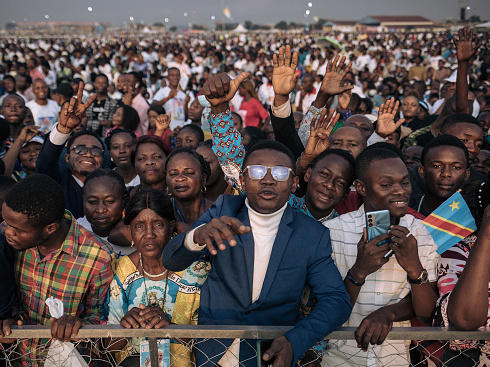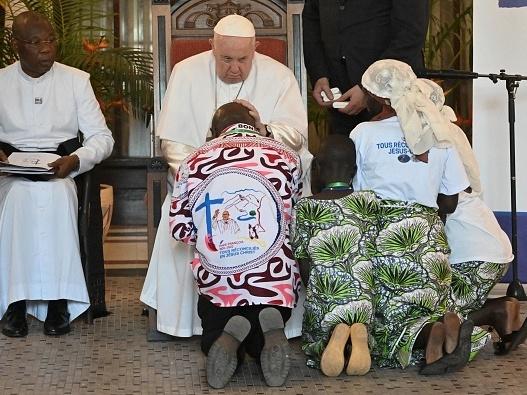Section Branding
Header Content
Pope Francis celebrates Mass with million faithful in Democratic Republic of Congo
Primary Content
LAGOS, Nigeria — An estimated million people attended an open mass by Pope Francis in Kinshasa on the second day of a landmark trip to the Democratic Republic of Congo.
A sea of people sang "viva papa," as Pope Francis arrived in his pope mobile, to an open Mass he held at the main airport in the capital Kinshasa.
The landmark trip is the first visit by a pope since 1985 and has ignited festival-like celebrations in a country with the largest Catholic population in Africa. About half of DRC's 95 million people.
But the visit also struck a somber note. The pope is keen to highlight the impact of decades of conflict by armed groups, and a bloody offensive by the M23 rebel group in the east of the country.
On his first day in the country Tuesday, he made a striking speech condemning what he called "economic colonialism."
"Hands off the Democratic Republic of the Congo! Hands off Africa! Stop choking Africa, it is not a mine to be stripped or a terrain to be plundered," Pope Francis said.
The pope repeated this message at the open-air Mass. He made a passionate denouncement against violence — and appealed for those armed groups, who call themselves Christians, to lay down their weapons.
More than 6 million people have been displaced by years of violence in the region. In some particularly moving scenes, the pope met victims of rape and violence.
"My pain is your pain," he told them.
This story originally appeared in NPR's Newscast.
Copyright 2023 NPR. To see more, visit https://www.npr.org.


